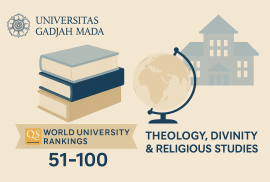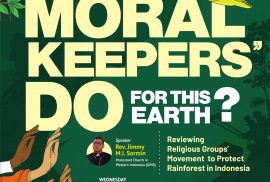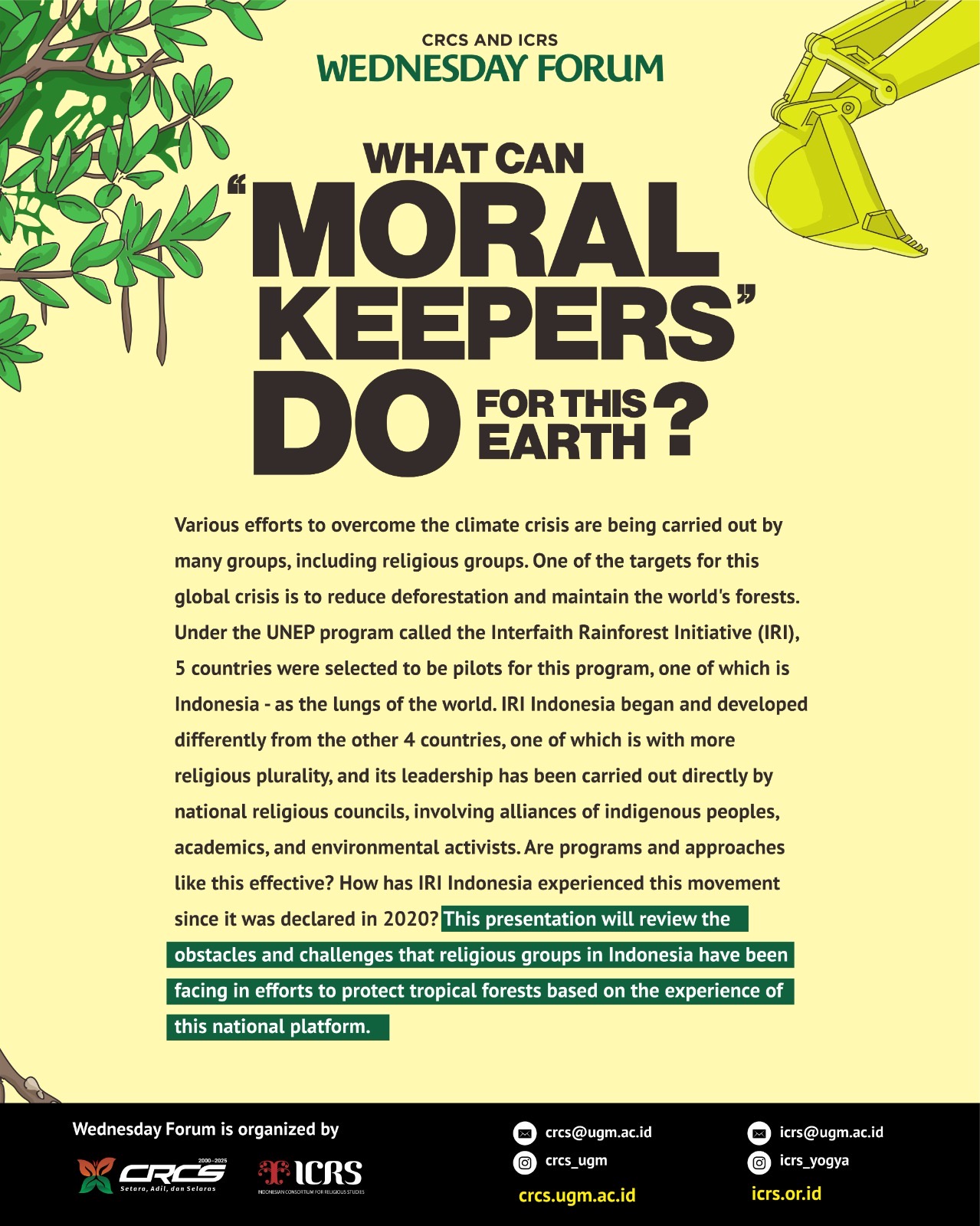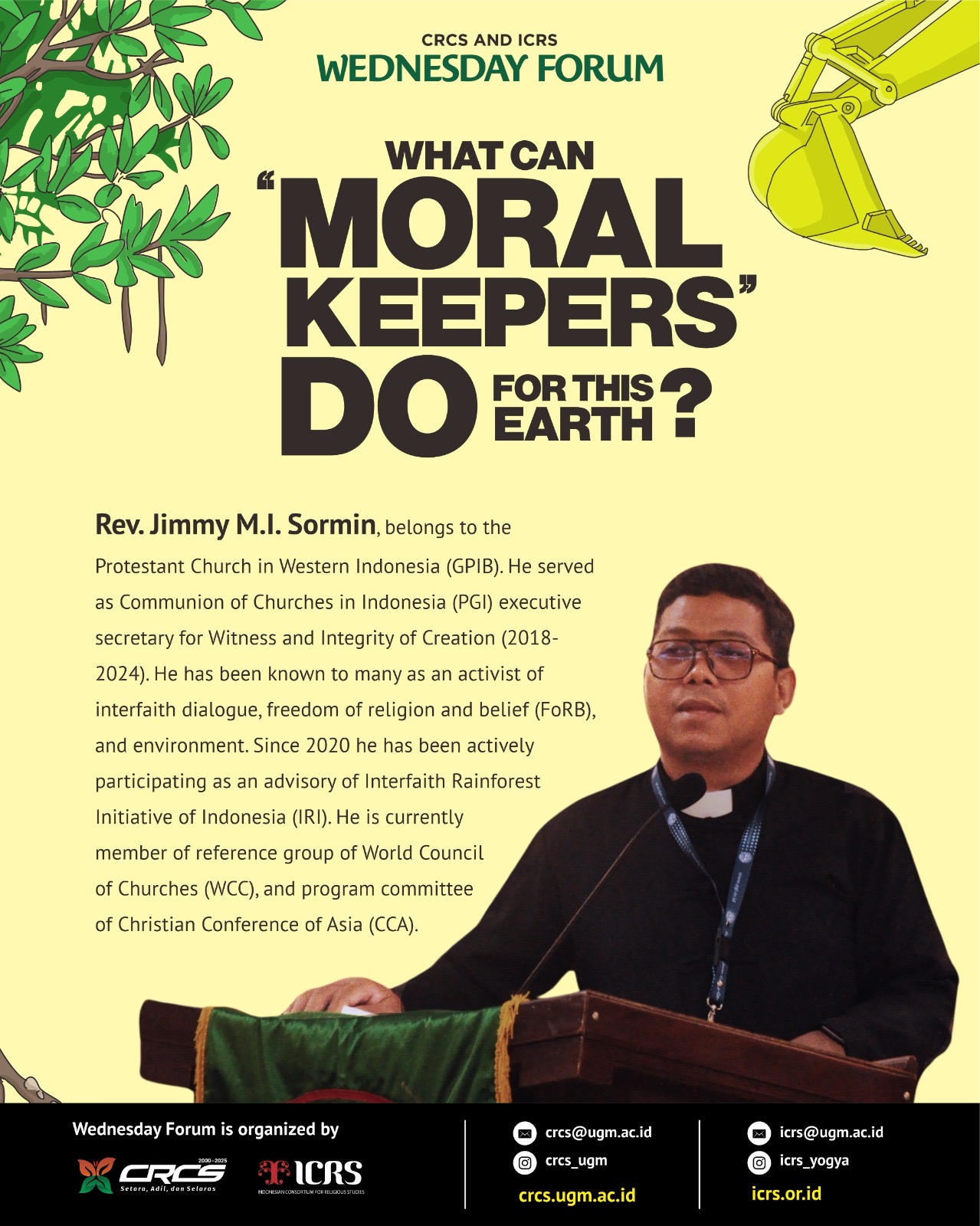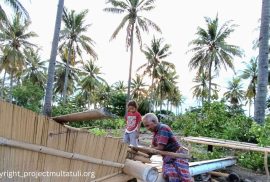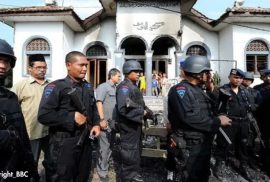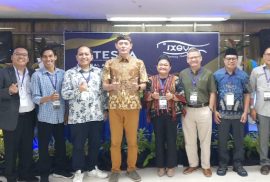Our doctoral program, Inter-religious Studies (IRS), and master program Center for Religious and Cross-cultural Studies (CRCS) of postgraduate school Universitas Gadjah Mada has once again been ranked in the 51-100 range in the world in the Theology, Divinity, and Religious Studies cluster in the QS World University Rankings by Subject 2025. This is the third time the university has received this international recognition. Besides UGM, other universities in Indonesia that made it into the world ranking list are UIN Syarif Hidayatullah and Universitas Indonesia in the 101-150 world ranking range.
Rezza Prasetyo Setiawan
Decolonization is a collective effort that seeks to span many sectors, including the domain of law. On January 2, 2023, Indonesia legalized a new penal code (Undang-Undang nomor 1 Tahun 2023 tentang Kitab Undang-Undang Hukum Pidana) which will come into effect on January 2, 2026. The new penal code (hereinafter referred to as KUHP 2023) will replace Wetboek van Strafrecht (WvS), a Dutch-constructed penal code which has long been the foundation for Indonesian criminal law.
Indonesian politics of religion and the related issues of religious freedom in Indonesia are tightly linked to the old penal code. The controversial Article 156a on religious blasphemy is often used as a tool to criminalize religious minorities. Currently, the seventh chapter of KUHP 2023, which includes Articles 300 to 305, specifically regulates matters related to religion or belief. Thus, changes brought by this recodification of the penal code garnered attention on how it would impact Indonesian politics of religion, specifically in matters of religious freedom.
Hendrikus Paulus Kaunang
Indonesia is currently facing a range of challenges that threaten its social and economic stability. Since the end of 2024, numerous events have pushed societal life to one of its lowest points in recent years. From a national leadership crisis, constitutional and legal manipulation, the weakening of the Rupiah, rising unemployment due to mass layoffs, to escalating political and social tensions, all have led the nation down a dark path, filled with uncertainty about a better future. The dream of Indonesia Emas (Golden Indonesia) 2045 seems more like a utopia when viewed against today’s circumstances. The terms Indonesia Gelap (Dark Indonesia) and Indonesia Cemas (Anxious Indonesia) are not mere expressions of pessimism, but rather a stark reflection of the crumbling foundations of national life, brought about by the capability of those in power who, ironically, emerged from a democratic process that is increasingly losing its meaning and integrity.
Written By: Anthon Jason
The agrarian conflict in Sikka Regency, Flores, involving PT Kristus Raja Maumere (Krisrama)—a corporation owned by the Catholic Diocese of Maumere—has emerged as a pivotal case for analyzing the interplay of religion, power, and land rights in postcolonial Indonesia. This conflict, which has garnered national attention since January 2025, represents a complex intersection of colonial legacies, religious authority, indigenous rights, and economic development. While the Catholic Church has historically positioned itself as an advocate for social justice, its role as a landowner and economic actor in Flores exposes contradictions between spiritual mission and neoliberal praxis.
Written By: Anthon Jason
Have you ever wondered how a blind person dreams? How does a blind person know whether he is awake or asleep? The reflective questions that emerged in the presentation of Wednesday Forum 12 March 2025 with Dr. Budi Irawanto tickled and made us realize how little we know about disability. The care and attention given are also often causing new problems because of the lack of willingness and ability to understand disability. Through the 2011 Indonesian film Hafalan Shalat Delisa (Delisa’s Prayer Memorization), directed by Sony Gaokasak and based on a novel by Tere Liye, Dr. Budi provides a critical analysis through the perspective of religious studies and communication science. The movie tells the story of a young girl’s resilience after losing her leg in the 2004 Aceh tsunami. Although it received praise for being able to attract audience sympathy and convey Islamic messages while also raising the theme of disability, there are some critical notes conveyed by Dr. Budi Irawan, who is an associate professor in the Department of Communication Science at the Faculty of Social and Political Sciences, Universitas Gadjah Mada.
Angie Wuysang
Human rights violations against Ahmadiyah in Indonesia reflect a broader struggle between constitutional guarantees of religious freedom and the influence of intolerant groups. While Indonesia officially upholds religious pluralism through Pancasila and its constitution, in practice, Ahmadiyah communities have faced systematic discrimination, legal restrictions, and even violence. In December 2024, the Jemaah Ahmadiyah Indonesia (JAI) planned to hold its annual gathering, known as Jalsah Salanah, in Desa Manislor, Kecamatan Jalaksana, Kabupaten Kuningan, West Java. More than 6000 Jemaah Ahmadiyah from all over Indonesia will gather in Manislor to worship, learn about the values of peace, and bond with each other. Men, women, children, and the elderly have started arriving since the day before the annual event begins, while many others are still on their way. But then, the tense drama and tragedy that had long haunted Jemaah Ahmadiyah happened again on the afternoon of 5 December. After previously obtaining an organizing permit, suddenly one day before the activity began, a letter was issued prohibiting the activity by the Regent of Kuningan. The situation in Manislor was tense. Hundreds of police and also the military district commander (Dandim) arrived at Manislor, escorting about 30 people from several mass organizations who rejected the Ahmadiyah meeting. Then the police blockaded all the entry points of the village, whether the highway or every small alley. This blockade caused JAI members still arriving to be stranded at various points, including thousands of them in the train station. Not only that, but the authorities also intimidated JAI members who were already present at the event location.
Leonard Chrysostomos Epafras
The Association for Theological Education in Southeast Asia (ATESEA) held its much-anticipated General Assembly from March 10 to 13, 2025, at Central Philippine University (CPU) in Iloilo City, Philippines. This prestigious gathering united heads of theological schools from 13 countries, representing 94 schools, both in person and online, to discuss pressing issues in theological education, emphasizing the role of Artificial Intelligence (AI) in shaping the future of theological discourse and pedagogy.
Anthon Jason
Just because one could not pronounce one word the same way, resulted in the death of forty-two thousand Ephraimites. This event is recorded in the Hebrew Bible, specifically in the Book of Judges 12:5-6. The word, “shibboleth”, was used to distinguish the Gileadites and Ephraimites. These two tribes of Israel were at war at the time, and this word became a linguistic test to differentiate between us and them, between friends and enemies. Those who could not pronounce “shibboleth” correctly (saying “sibboleth” instead) were identified as enemies and slaughtered. This ancient practice demonstrates the historical precedent for using language as a tool of identification and exclusion. Throughout history, similar linguistic markers have been employed during conflicts and social tensions to distinguish between insiders and outsiders. This is the historical context of how language polarized society was presented by Dr. Michael R. Quinlan at the CRCS-ICRS Wednesday Forum on February 26, 2025.

